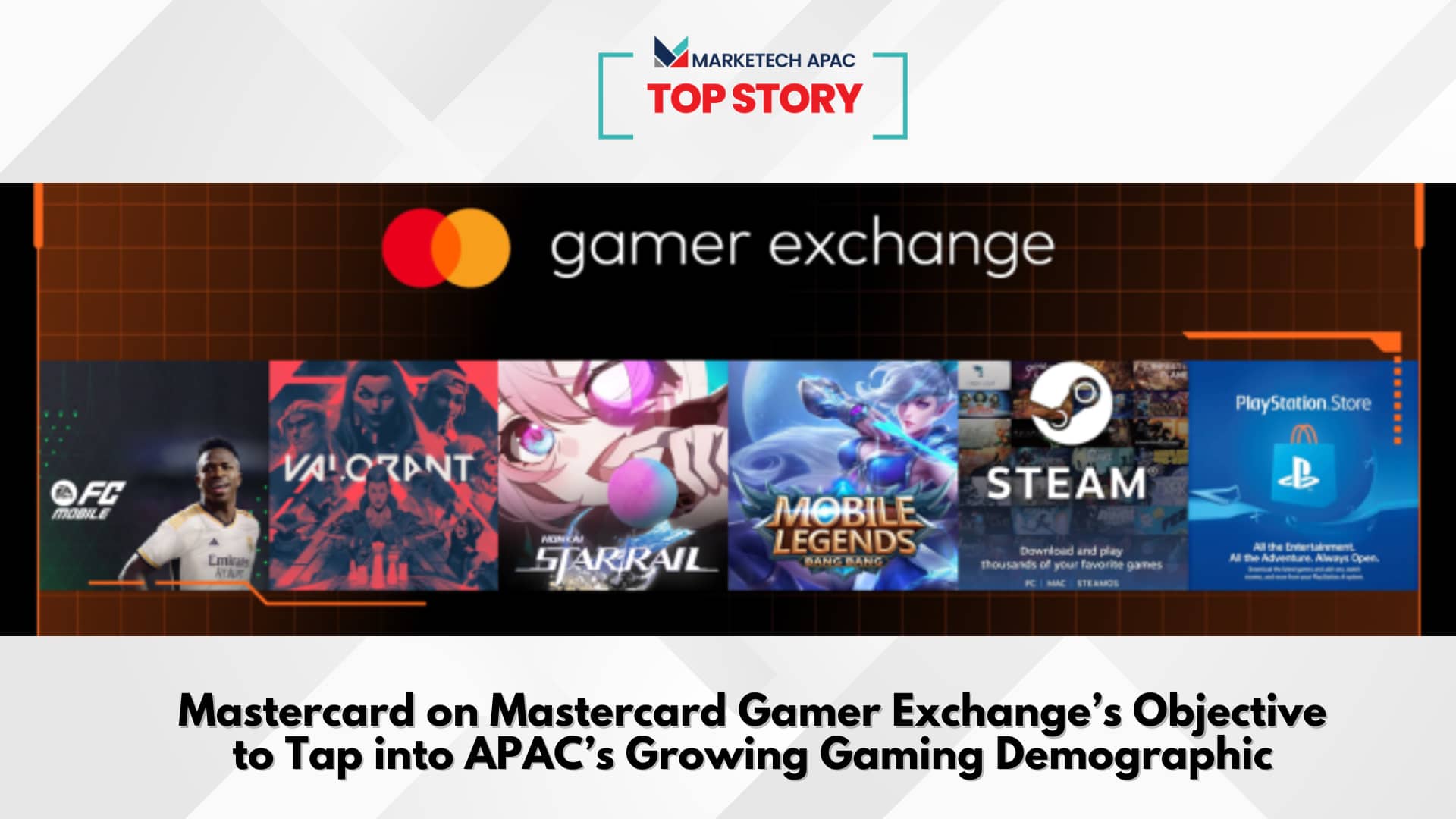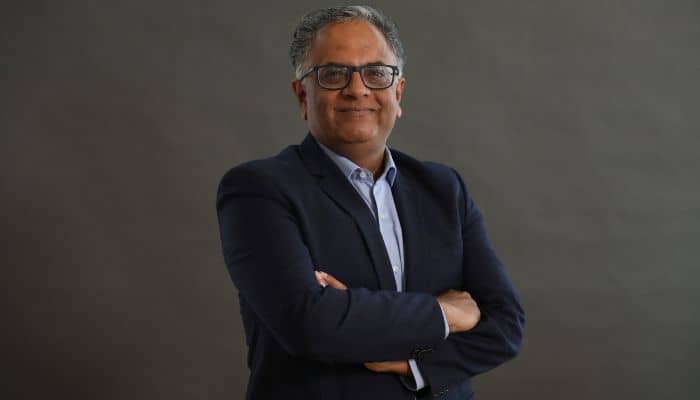The Asia-Pacific (APAC) region is buzzing with potential, and one of the biggest drivers behind this is its booming population of gamers. From tech-savvy Gen Z consumers in urban hubs to an increasingly affluent and aspirational middle class in emerging economies, the diversity and scale of this demographic present endless opportunities for brands looking to expand their reach.
What makes this even more exciting is the sheer pace of change. Digital adoption is soaring, lifestyles are evolving, and consumer expectations are rising across the board. From innovative e-commerce platforms to thriving social media ecosystems, APAC isn’t just growing—it’s shaping the future of how businesses connect with their audiences.
With this objective in mind, this is exactly what Mastercard did for its ‘Mastercard Gamer Exchange’ initiative, which helps consumers convert their unspent rewards points into gaming currency across some of the world’s most popular gaming titles. More recently, Mastercard Gamer Exchange expanded its reach in Malaysia through a partnership with Ribena which rewards gamers through the platform when they purchase eligible Ribena products.
For our latest Top Story feature, we spoke with Kauveri Khullaar, senior vice president for consumer marketing & sponsorships for Asia-Pacific at Mastercard to better understand Mastercard Gamer Exchange’s plans to expand in APAC, and how Mastercard intends to continue tapping into the growing gamer demographic for better consumer experiences.
Creating a loyalty program for APAC’s gaming demographic
Before we explore Mastercard Gamer Exchange’s objective, Kaveri points out first how gaming has become a global phenomenon, captivating over 3 billion people, nearly half of whom are women, across casual and competitive genres. Moreover, the industry, projected to generate US$282b in revenue this year and grow to US$363b by 2027, is a powerhouse of entertainment.
Speaking in the context for APAC, she says, “Asia-Pacific leads the charge, contributing nearly half of global gaming revenue, thanks to its massive base of 1.5 billion gamers. In Malaysia alone, 23 million gamers are expected to drive US$650m in revenue by 2024, highlighting the region’s significant role in the gaming boom.”
Gaming’s growth in the region is supported by growing technological advancements like smartphones and 5G connectivity, which have propelled gaming’s growth, enabling casual gaming during commutes and easy access to free-to-play games. These innovations have contributed to the industry’s impressive revenue. While gaming appeals to all demographics, the most engaged players—who also spend the most—are mass-affluent, digitally savvy individuals aged 35-44.
From this context, Kaveri highlights that it was against this backdrop, and with an ambition for marketing to directly impact revenue, that Mastercard Gamer Exchange was created at the peak of COVID-19.
“It started in 2021 when all travel ceased, decimating one of the largest reward redemption categories. Loyalty programs faced the spectre of increased liability on their financial books owing to points’ accumulation, and frustrated members who were seeing their points value dilute over time; at the same time, stay-at-home entertainment activities were getting a fillip, with video gaming being the biggest beneficiary,” she stated.
Revolutionising rewards with gamers’ passion
For Kaveri, the Mastercard Gamer Exchange solution is designed to let gamers convert reward points into gaming credits across top titles, addressing a gap in traditional loyalty programs. For her, the platform–which is built on the insight that gamers typically engage with multiple games simultaneously–prioritises diverse in-game options and allows bite-sized redemptions, eliminating the need for large point balances.
“This philosophy of engineering a solution with gamers at its heart gave birth to a conversion engine that burns reward points for gaming credits across top gaming titles, giving game-loving consumers a simple, intuitive way to use loyalty points for a form of entertainment that had been largely underserved by rewards programs,” she said.
She also added that Mastercard Gamer Exchange not only enhances the gaming experience for consumers but also creates opportunities for brands to connect with this engaged audience by offering a fresh rewards category. Additionally, it serves as a novel distribution channel for game publishers and developers.
“Not only is Mastercard Gamer Exchange uniquely positioned to reward gamers, but it also plays an important role in connecting brands to this audience. With one simple, seamless solution, any brand – regardless of their sector or industry – can offer their audiences a whole new category in rewards redemption, gaining their loyalty and engagement with this consumer segment. This value proposition is true to what we stand for at Mastercard – connecting people to their passions, and thereby building a deeper connection with our and our partners’ brands,” she added.
Mastercard Gamer Exchange’s Ribena collaboration and the platform’s future
Mastercard Gamer Exchange first entered the Malaysian market in 2023 through a successful collaboration with Boost, achieving strong adoption rates. This was then followed by this partnership with Ribena Malaysia, showcasing the platform’s ability to deliver value across diverse industries and highlighting its appeal to like-minded brands beyond the gaming sector.
“Malaysia boasts a unique melting pot of cultures, which is reflected in its vibrant gaming community. The campaign with Ribena is still underway, and we have already seen positive traction with the number of redemptions driven by this campaign. This is a clear sign that the approach is resonating with the audience of gamers that Ribena appeals to,” Kaveri said.
When asked about the future of Mastercard Gamer Exchange and Mastercard’s gamer-related initiatives, she stated that the company has been at the forefront of creating unique offerings for gamers in Asia-Pacific and around the world since 2018, being the first global partner for popular game ‘League of Legends’.
She also added that Mastercard regularly partners with banks to introduce co-branded League of Legends cards that offer cardholders Riot points, discounts and cashback on in-game purchases.
“With Mastercard Gamer Exchange, we will continue to forge partnerships with issuing banks, merchants and fintech partners who are keen to leverage this lucrative audience and commit to a long-term game of value creation for them,” she concluded.
***
The gaming demographic in APAC isn’t just growing—it’s thriving, and it’s reshaping the way people engage with entertainment. With millions of avid gamers across diverse age groups and preferences, the region is a goldmine of opportunities for brands looking to connect with a digitally-savvy, highly engaged audience.
Whether it’s through platforms like Mastercard Gamer Exchange, which seamlessly integrates rewards with gaming, or through collaborations with industry partners, the potential to build loyalty and drive engagement in APAC’s gaming ecosystem is immense.










